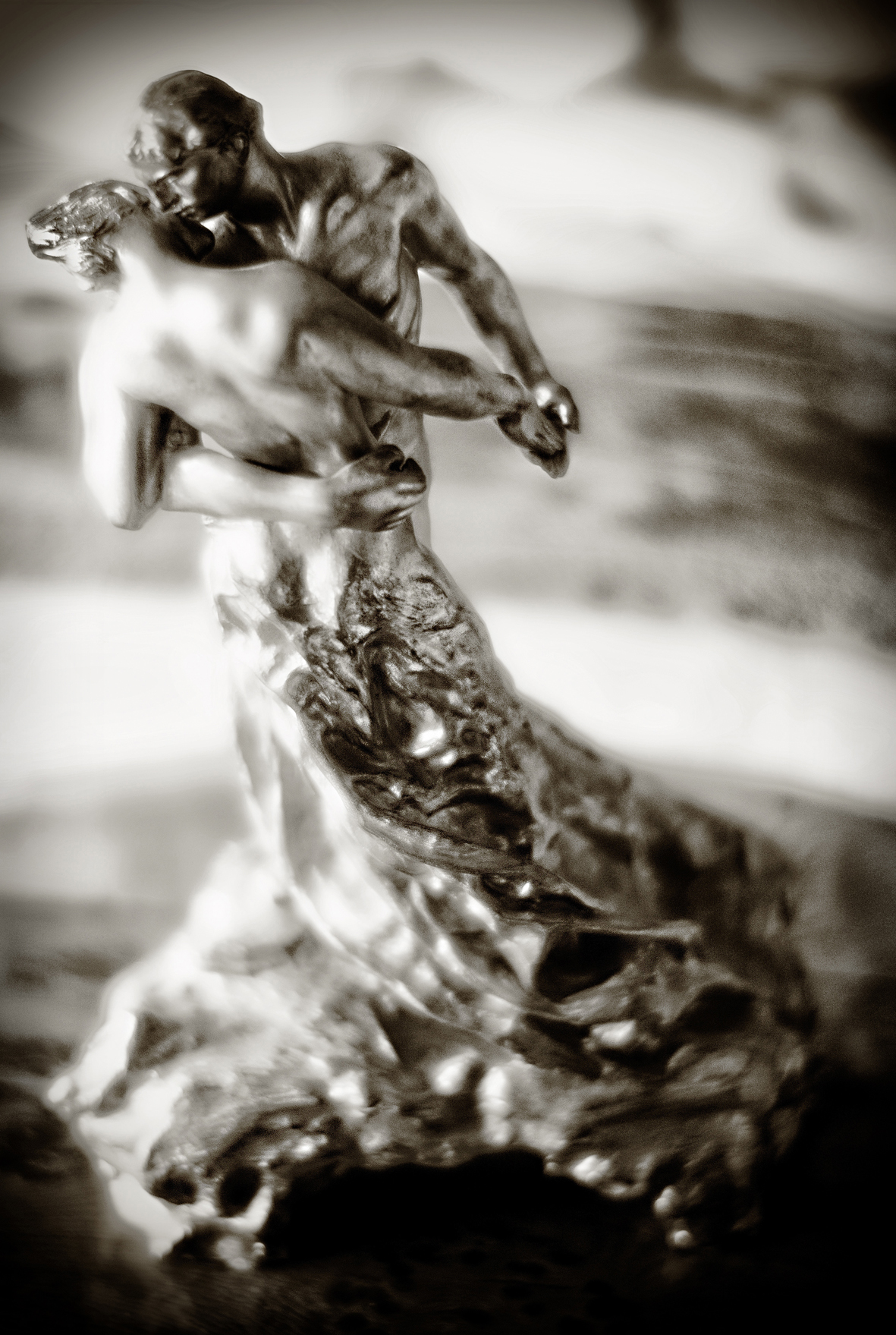|
Oom-pah
Oom-pah, Oompah, Ooumpah or Umpapa is an onomatopoeic term describing the rhythmic sound of a deep brass instrument in combination with the response of other instruments or registers in a band, a form of background ostinato. The oom-pah sound is usually made by the tuba alternating between the root of the chord and the 5th — this sound is said to be the ''oom''. The ''pah'' is played on the off-beats by higher-pitched instruments such as the clarinet, accordion or trombone. Oompah is often associated with '' Volkstümliche Musik'', a form of popular German music, and with polka. In triple time genres such as the waltz it is oom-pah-pah. The musical '' Oliver!'' contains a song named " Oom-Pah-Pah", which is named after the oom-pah. A more modern variation is the playing of contemporary pop and rock songs in an Oompah style, by bands such as Global Kryner (Austria), Oompah Brass (UK) (who dubbed the style "Oompop"), and Brumpah (UK, West Midlands). The American jam ban ... [...More Info...] [...Related Items...] OR: [Wikipedia] [Google] [Baidu] |
Oliver!
''Oliver!'' is a stage musical, with book, music and lyrics by Lionel Bart. The musical is based upon the 1838 novel ''Oliver Twist'' by Charles Dickens. It premiered at the Wimbledon Theatre, southwest London in 1960 before opening in the West End, where it enjoyed a record-breaking long run. ''Oliver!'' ran on Broadway, after being brought to the U.S. by producer David Merrick in 1963. Major London revivals played from 1977 to 1980, 1994 to 1998, 2008 to 2011 and on tour in the UK from 2011 to 2013. Additionally, its 1968 film adaptation, directed by Carol Reed, won six Academy Awards including Best Picture. ''Oliver!'' received thousands of performances in British schools, becoming one of the most popular school musicals. In 1963 Lionel Bart received the Tony Award for Best Original Score. Many songs are well known to the public, such as " Food, Glorious Food", " Consider Yourself" and " I'd Do Anything". Background ''Oliver!'' was the first musical adaptation of a ... [...More Info...] [...Related Items...] OR: [Wikipedia] [Google] [Baidu] |
Carter Family Picking
file:Carter-style lick.mid Carter Family picking, also known as the thumb brush, the Carter lick, the church lick, or the Carter scratch,Sid Griffin and Eric Thompson (2006). ''Bluegrass Guitar: Know the Players, Play the Music'', p.22. . is a style of fingerstyle guitar named after Maybelle Carter of the Carter Family. It is a distinctive style of rhythm guitar in which the melody is played on the bass strings, usually low E, A, and D while rhythm strumming continues above, on the treble strings, G, B, and high E. This often occurs during the break. The style bears similarity to the frailing style of banjo playing and is the rhythm Bill Monroe adapted for bluegrass music two decades later. With this technique, Carter, who "was among the first" to use it, "helped to turn the guitar into a lead instrument". It is unclear how Maybelle developed her style. The Carter scratch can be heard on the Carter Family's first recordings, from their first session in Bristol, Tennessee o ... [...More Info...] [...Related Items...] OR: [Wikipedia] [Google] [Baidu] |
Accompaniment
Accompaniment is the musical part which provides the rhythmic and/or harmonic support for the melody or main themes of a song or instrumental piece. There are many different styles and types of accompaniment in different genres and styles of music. In homophonic music, the main accompaniment approach used in popular music, a clear vocal melody is supported by subordinate chords. In popular music and traditional music, the accompaniment parts typically provide the "beat" for the music and outline the chord progression of the song or instrumental piece. The accompaniment for a vocal melody or instrumental solo can be played by a single musician playing an instrument such as piano, pipe organ, or guitar. While any instrument can in theory be used as an accompaniment instrument, keyboard and guitar-family instruments tend to be used if there is only a single instrument, as these instruments can play chords and basslines simultaneously (chords and a bassline are easier to play sim ... [...More Info...] [...Related Items...] OR: [Wikipedia] [Google] [Baidu] |
Eläkeläiset
Eläkeläiset ( Finnish for "pensioners") are a Finnish humppa band founded in 1993. Current members of the band are Onni Waris (keyboard, vocals), Petteri Halonen (keyboard, guitar, vocals), Lassi Kinnunen (accordion, vocals), Martti Waris (bass, vocals), and Tapio Santaharju (drums, vocals). Ilmari Koivuluhta (sound technique, logistics) and Pekka Jokinen (graphics, merchandise) complete the "humppa family". According to the band's statements, they play between 80 and 100 concerts per year, of which only 20 in Finland and 40 to 50 in Germany, due to their popularity there. They have visited several big international music festivals, including heavy metal festivals such as Wacken Open Air and Tuska Open Air. Eläkeläiset mainly play cover versions of famous pop and rock hits in a fast humppa or slow jenkka style with Finnish lyrics. They also publish bootleg recordings of their own concerts. Eläkeläiset are very popular among some OpenBSD developers and frequently playe ... [...More Info...] [...Related Items...] OR: [Wikipedia] [Google] [Baidu] |
Humppa
Humppa is a type of music from Finland. It is related to jazz and fast foxtrot, played two beats to a bar ( or ) at around 110 to 130 beats per minute. Humppa is also the name of a few social dances done to humppa music. All dances involve a bounce that follows the strong bass. In Finnish, the word ''humppa'' can be used for social dancing. The name humppa was invented by Antero Alpola for a radio show in the 1950s. He picked it up from German Oktoberfest where the locals used the word oompah to describe the music. The band probably used a tuba, as the sound of tuba on the first beat is like ''hump'', the second beat coming as a ''pa''. Dances Three different dances are typically danced to humppa music. They existed long before the word "humppa" was coined. One form of Humppa dance is related to one-step, which arrived in Finland 1913. In this kind of humppa, both dancers take a step on each first beat (on "hump") and progress to the direction of dance. This is danced makin ... [...More Info...] [...Related Items...] OR: [Wikipedia] [Google] [Baidu] |
Duple Time
Duple metre (or Am. duple meter, also known as duple time) is a musical metre characterized by a ''primary'' division of 2 beats to the bar, usually indicated by 2 and multiples (simple) or 6 and multiples ( compound) in the upper figure of the time signature, with ( cut time), , and (at a fast tempo) being the most common examples. Shown below are a simple and a compound duple drum pattern. : \new Staff : \new Staff Though the upper number ''must be'' divisible by 2, the mere fact that 2 evenly divides the upper figure does not in and of itself indicate a duple metre; it is only a prerequisite. The most common time signature in rock, blues, country, funk, and pop is . Although jazz writing has become more adventurous since Dave Brubeck's ''Time Out'', the majority of jazz and jazz standards are still in "common time" (). Duple time is common in many styles including the polka, well known for its obvious "oom-pah" duple feel. Compare to the waltz. Quadruple metre ... [...More Info...] [...Related Items...] OR: [Wikipedia] [Google] [Baidu] |
Phish
Phish is an American rock band formed in Burlington, Vermont, in 1983. The band consists of guitarist Trey Anastasio, bassist Mike Gordon, drummer Jon Fishman, and keyboardist Page McConnell, all of whom perform vocals, with Anastasio being the primary lead vocalist. The band is known for their musical improvisation and Jam session#Rock, jams during their concert performances and for their devoted fan following. The band was formed by Anastasio, Gordon, Fishman and guitarist Jeff Holdsworth, who were joined by McConnell in 1985. Holdsworth departed the band in 1986, and the lineup has remained stable since. Most of the band's songs are co-written by Anastasio and lyricist Tom Marshall (singer), Tom Marshall. Phish began to perform outside of New England in the late 1980s and experienced a rise in popularity in the mid 1990s. In October 2000, the band began a two-year hiatus that ended in December 2002, but they disbanded again in August 2004. Phish reunited officially in October ... [...More Info...] [...Related Items...] OR: [Wikipedia] [Google] [Baidu] |
Jam Band
A jam band is a musical group whose concerts and live albums substantially feature improvisational "jam session, jamming". Typically, jam bands will play variations of pre-existing songs, extending them to musical improvisation, improvise over vamp (music), chord patterns or rhythmic groove (music), grooves. Jam bands are known for having a very fluid structure, playing long sets of music which often cross genre boundaries, varying their nightly setlists, and Segue (music), segueing from one song into another without a break. The jam-band musical style, spawned from the psychedelic rock movement of the 1960s, was a feature of nationally famed groups such as the Grateful Dead and The Allman Brothers Band, whose regular touring schedules continued into the 1990s. The style influenced a new wave of jam bands who toured the United States with jam band-style concerts in the late 1980s and early '90s, such as Phish, Blues Traveler, Widespread Panic, Dave Matthews Band, The String C ... [...More Info...] [...Related Items...] OR: [Wikipedia] [Google] [Baidu] |
Global Kryner
Global Kryner were a six-piece Austrian folk group, consisting of clarinet player Christof Spörk, bass trombonist, tenor and yodeller Sebastian Fuchsberger, guitarist Edi Koehldorfer, trumpet player Karl Rossmann, accordion player Anton Sauprügl, and jazz vocalist Sabine Stieger. The group has won numerous awards in Germany and Austria, and represented Austria in the Eurovision Song Contest 2005 in Kyiv, Ukraine Ukraine is a country in Eastern Europe. It is the List of European countries by area, second-largest country in Europe after Russia, which Russia–Ukraine border, borders it to the east and northeast. Ukraine also borders Belarus to the nor .... 2005 Eurovision Song Contest Global Kryner were the first band to perform in the semi-final of the 2005 Eurovision Song Contest, opening the show, but did not receive enough televotes to progress to the final, coming 21st out of 25 countries. Due to this poor result for the band, the Austrian national broadcas ... [...More Info...] [...Related Items...] OR: [Wikipedia] [Google] [Baidu] |
Oom-Pah-Pah (song)
"Oom-Pah-Pah" is a show tune with music and lyrics by Lionel Bart, featured in the 1960 musical ''Oliver!'', in which it is sung by Nancy and the crowd at the "Three Cripples" tavern. Although not an original music hall song, it recalls that genre. In terms of both its tempo and suggestiveness, it shares characteristics with such late 19th century songs as "Ta-ra-ra Boom-de-ay "Ta-ra-ra Boom-de-ay" is a vaudeville and music hall song first performed by the 1880s. It was included in Henry J. Sayers' 1891 revue ''Tuxedo (vaudeville), Tuxedo'' in Boston, Massachusetts. The song became widely known in the 1892 version sung ...". In the stage musical, the song opens Act II and does not directly contribute to the storyline. For the 1968 film version, the song was moved near the end and served a dramatic purpose: Bill Sikes refuses to let Nancy take Oliver out of the pub and, unbeknownst to him, to Mr. Brownlow for rescue. He orders Bullseye to guard Oliver while he discusses mat ... [...More Info...] [...Related Items...] OR: [Wikipedia] [Google] [Baidu] |
Waltz
The waltz ( , meaning "to roll or revolve") is a ballroom dance, ballroom and folk dance, in triple (3/4 time, time), performed primarily in closed position. Along with the ländler and allemande, the waltz was sometimes referred to by the generic term German Dance in publications during the late 18th and early 19th centuries. History There are many references to a sliding or gliding dance, including ''volte'', that would evolve into the waltz that date from 16th-century Europe, including the representations of the Printmaking, printmaker Sebald Beham, Hans Sebald Beham. The French philosopher Michel de Montaigne wrote of a dance he saw in 1580 in Augsburg, where the dancers held each other so closely that their faces touched. Kunz Haas (of approximately the same period) wrote, "Now they are dancing the godless ''Weller'' or ''Spinner''."Nettl, Paul. "Birth of the Waltz." In ''Dance Index'' vol 5, no. 9. 1946 New York: Dance Index-Ballet Caravan, Inc. pages 208, 211 "The ... [...More Info...] [...Related Items...] OR: [Wikipedia] [Google] [Baidu] |








